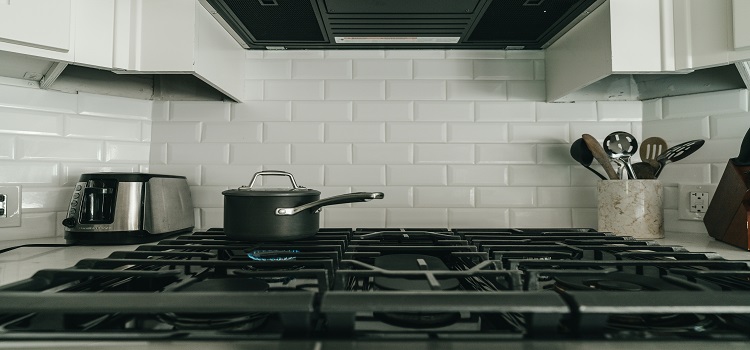As an Amazon Associate I earn from qualifying purchases.
How to Detect a Gas Leak from Your Stove: A Comprehensive Guide
Introduction: Detecting a gas leak from your stove is crucial for ensuring the safety of your home and family. Gas leaks can pose serious risks, including fire hazards and health concerns due to exposure to natural gas or propane. In this guide, we’ll discuss the importance of detecting gas leaks promptly, explore common signs of a gas leak from a stove, provide step-by-step instructions on how to detect a gas leak, and address frequently asked questions to help you stay informed and prepared.

Uses of Gas Stoves: Gas stoves are essential appliances in many households, providing efficient and convenient cooking solutions. However, proper maintenance and vigilance are necessary to ensure safe operation and prevent potential hazards such as gas leaks. Detecting a gas leak from your stove is critical for maintaining a safe cooking environment and avoiding the risks associated with gas leaks.
Benefits of Detecting Gas Leaks Early:
- Safety: Early detection of gas leaks helps prevent potential fire hazards and health risks associated with gas exposure.
- Property Protection: Prompt detection and repair of gas leaks can prevent damage to your home and appliances caused by gas buildup or ignition.
- Peace of Mind: Regular monitoring for gas leaks provides reassurance that your cooking environment is safe and free from potential hazards.
- Cost Savings: Addressing gas leaks early can prevent costly repairs or damage to appliances, saving you money in the long run.
How to Detect a Gas Leak from Your Stove:
- Smell: Natural gas and propane are odorless, but utility companies add a distinctive odorant (mercaptan) to help detect leaks. If you detect a sulfur-like smell, it may indicate a gas leak.
- Listen: Pay attention for hissing or whistling sounds near the stove, which could indicate a gas leak.
- Look: Check for visible signs of damage or deterioration in gas lines, connectors, or stove components. Bubbling or discolored areas near connections may indicate a leak.
- Use a Gas Detector: Consider investing in a gas detector specifically designed to detect natural gas or propane leaks. Follow the manufacturer’s instructions for proper use and placement.
FAQs (Frequently Asked Questions):
- What should I do if I smell gas near my stove?
- If you detect the smell of gas, immediately turn off the stove, extinguish any open flames, ventilate the area by opening windows and doors, and evacuate the premises. Contact your gas provider or emergency services for assistance.
- Can a gas leak from a stove be dangerous?
- Yes, gas leaks can be dangerous and pose risks such as fire hazards, explosions, and health concerns due to gas inhalation. Prompt detection and intervention are essential to mitigate these risks.
- How often should I check for gas leaks from my stove?
- It’s recommended to check for gas leaks regularly, ideally once a month, as part of your home safety routine. Additionally, be vigilant for any signs or symptoms of a gas leak during everyday use of the stove.
- What are the symptoms of gas exposure?
- Symptoms of gas exposure may include headaches, dizziness, nausea, fatigue, difficulty breathing, and irritation of the eyes, nose, or throat. Seek medical attention immediately if you experience these symptoms and suspect a gas leak.
- Can a gas leak from a stove cause a fire or explosion?
- Yes, gas leaks can create an ignition source, leading to fires or explosions if the leaked gas comes into contact with an open flame, electrical spark, or other ignition sources.
- Should I attempt to repair a gas leak myself?
- It’s not advisable to attempt to repair a gas leak yourself, as this requires specialized knowledge and equipment. Contact a licensed professional or your gas provider for assistance with detecting and repairing gas leaks safely.
- What should I do if I cannot locate the source of a gas leak?
- If you are unable to locate the source of a gas leak or suspect a leak but cannot confirm its origin, evacuate the premises immediately and contact your gas provider or emergency services for assistance.
- Can I use soapy water to detect gas leaks?
- Yes, you can use a solution of water and dish soap to detect gas leaks by applying it to connections or fittings and observing for bubbles. However, this method may not be suitable for detecting small leaks or leaks in hard-to-reach areas.
- Are gas leaks more common in certain types of stoves?
- Gas leaks can occur in any type of gas stove, including natural gas and propane models. Proper installation, maintenance, and vigilance are key to preventing gas leaks regardless of stove type.
- Is it safe to use a gas stove if I suspect a gas leak?
- No, it is not safe to use a gas stove if you suspect a gas leak. Turn off the stove, evacuate the premises, and contact your gas provider or emergency services for assistance.
Conclusion: Detecting a gas leak from your stove is essential for maintaining a safe cooking environment and preventing potential hazards such as fires, explosions, and health risks. By familiarizing yourself with the signs of a gas leak, following safety precautions, and addressing any concerns promptly, you can ensure the safety and well-being of your household. Remember to prioritize safety, seek professional assistance when needed, and incorporate gas leak detection into your regular home maintenance routine.
As an Amazon Associate I earn from qualifying purchases.
Leave a Reply